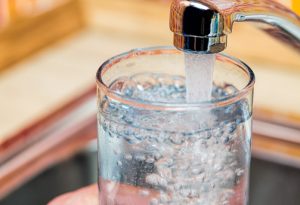
According to national health guidelines, there is no such recommendation.
How much is enough?
Drinking eight glasses of water a day may have been a myth perpetuated through the ages, with no one stopping to check the source of information. And why would you? Water is good for health, right, so the more than better. According to the US Centers for Disease Control and Prevention, if you are healthy, you should get enough fluid by drinking when you’re thirsty and getting fluids with meals. It is also a good idea to compensate when more fluid is needed, like on hot days.
Water’s health benefits
Water serves as a lubricant for almost all body processes. It is a component of our saliva, which helps facilitate chewing and swallowing. Water also provides the molecules necessary for important cartilage tissue and synovial fluid in the joint. It even helps regulate our body temperature through perspiration. If we didn’t have those sweat beads forming on our skin when we become overheated, we would be unable to cool down and would perish from heat stroke.
You can get many other health benefits from drinking water. Sufficient hydration is important for kidney health, and may even lower your risk of kidney disease. A study carried out in Australia found that those who drank about 13 cups of water a day we able to considerably decrease their risk of kidney disease.
It is estimated that the average adult loses between two to three quarts of water per day through normal processes. Roughly 70 percent of our bodies are made up of water, so it’s very important to replenish what has been lost. Watch what you’re drinking, however. Soda, for example, contains caffeine, which is a mild diuretic, meaning it will make you lose more water due to increased urination.
The may not be any real cut-and-dry rule on how much water a person should drink each day. The important thing to keep in mind is, listen to your body, and to drink when thirsty.